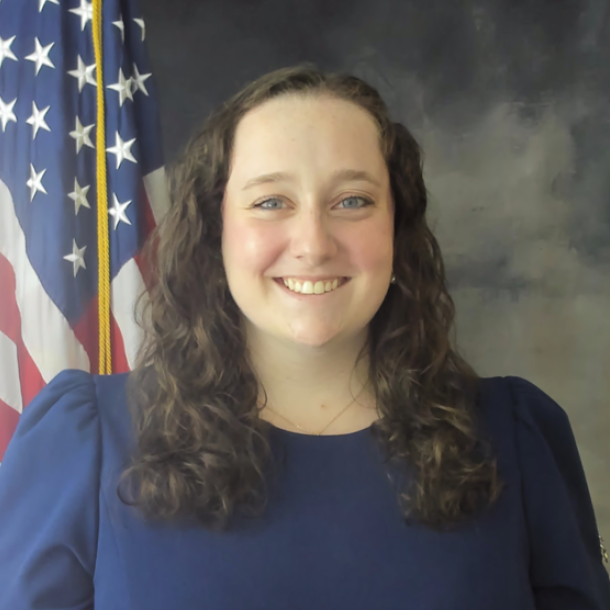Counties Address the Social Determinants of Health Through Mobile Health Services
Upcoming Events
Related News

Key Takeaways
Healthy People 2030 defines the social determinants of health (SDOH) as the conditions in which we are born, live, work and play that both directly and indirectly impact overall health and well-being. This framework also highlights five domains to organize the social determinants of health, including economic stability, education access and quality, health care access and quality, neighborhood and built environment and social and community context. County leaders are well-positioned to understand the influence of SDOH on residents’ health and leverage them to create comprehensive systems change and eliminate barriers to health equity. Counties across the U.S. are actively exploring innovative ways to address the needs of their residents through the lens of SDOH.
One SDOH domain counties are addressing is healthcare access and quality. A common strategy to address this domain is to provide mobile access to care through the use of mobile health trailers, offices or crisis response teams. This innovative solution allows healthcare services to be delivered locally to those who cannot access care through standard institutions or methods. This strategy also provides greater flexibility for people to connect to social services and other support along the healthcare continuum through collaborations with other county departments. Additionally, this strategy allows county leaders to deliver health services in communities presenting the greatest needs.
The following initiatives are just a few examples of county investments in the social determinants of health to deliver equitable health services to their communities. Here is what we have learned:
- While many of these programs were initially developed to support COVID-19 response efforts, many counties have since transitioned to utilize the mobile health infrastructure to address other pressing community health needs.
- Mobile health services are an innovative method for counties to bring health services directly to underserved residents and tailor resources and referrals to the individual need.
- These programs enhance counties’ ability to provide wraparound services and address not only the health needs of residents, but also their social needs and combat the underlying social determinants of health.
Dakota County, Minn.: Mobile Health Trailer
The Dakota County Public Health Department purchased a mobile health trailer in 2020 using federal Coronavirus Aid, Relief, and Economic Security (CARES) funding. The main goal of using this trailer was to increase access and reach community members who were facing barriers in receiving coronavirus (COVID-19) vaccinations. The county was specifically looking to reach people of color, immigrant and refugee communities, people who do shift work, those who lack reliable transportation or internet access and families in need of childcare. These target communities were identified to be at a higher risk of contracting COVID-19, experience inequities in a variety of health outcomes and were less likely to be able to receive a vaccine at mass vaccination sites.
The Dakota County public health team collaborated with social services, as well as local school districts, faith communities, worksites and community organizations to host mobile trailer clinics. The team also worked with the staff from the county’s Child and Teen Checkups, Family Health and WIC (Special Supplemental Nutrition Program for Women, Infants, and Children) programs in order to expand the available health services provided to residents.
Since launching in May 2021, the trailer has hosted 60 mobile clinics and administered over 1,600 COVID-19 and flu vaccine doses to community members. In 2021, Dakota County administered more COVID-19 immunizations via mobile clinic than any other county in Minnesota and the trailer helped the county have one of the highest immunization rates in the state.
San Diego County, Calif.: Live Well on Wheels (LWoW)
In 2020, and more recently in 2022, San Diego County invested in two Live Well on Wheels (LWoW). The LWoW is a large RV, equipped with tools to bring both health and other integral services directly to hard-to-reach communities. While the program was originally intended to be used solely for COVID-19 response efforts and vaccination, the LWoW enables San Diego County to partner with community organizations in order to provide a wide array of services, including disaster response, public assistance, veterans’ services, public health services (e.g., vaccinations), behavioral health services, housing and homeless supports, aging services and animal services. LWoW has served almost 23,000 people at over 200 community locations.
Howard County, Md.: Mobile Integrated Community Health (MICH) Program
Howard County, Md. is innovating healthcare delivery and crisis response through their Mobile Integrated Community Health (MICH) program. Launched in August of 2020, MICH was created to decrease the number of 911 calls for non-emergency situations. The MICH program was designed to increase access to services that address underlying needs of Howard County residents. The program provides a comprehensive space that coordinates services and skills provided by paramedics, social workers, registered nurses, community health workers and others to create individual treatment plans for each patient and connect them with the appropriate county resources. MICH also assists with general vaccination, testing and follow-up services. In the first six months of the MICH program, these health professionals served approximately 76 clients and facilitated over 141 services referrals and 44 home visits. The program also saw approximately 84% less 911 calls for those who received home visits, administered more than 600 COVID-19 tests and vaccinated nearly 1,200 residents.
Contact
Related News

HHS Secretary Kennedy touts fixes for obesity, chronic illness, mental health issues
Counties can help improve health outcomes by prioritizing prevention over treatment, Robert F. Kennedy Jr., secretary of the U.S. Department of Health and Human Services told NACo Legislative Conference attendees.

Drug tracking software helps counties identify trends, save lives
Florida counties are using an artificial intelligence tool called Drug TRAC to track and report drug trends, with the aim of providing quicker outreach and saving lives.

White House Executive Order establishes national substance use disorder response
On January 29, the White House issued an Executive Order (EO) establishing the Great American Recovery Initiative, a new federal effort aimed at coordinating a national response to substance use disorder (SUD).
